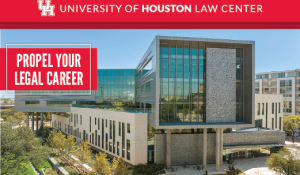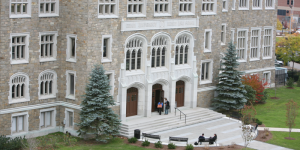On June 29, the US Supreme upheld a controversial temporary travel ban that would bar citizens from six countries and all refugees from entering the United States.
The decision came after months of legal wrangling; an original ban, released on January 27, had included Iraq on the list of barred nations and imposed a full ban on refugees from Syria, sparking mass protests across the US. President Donald Trump issued a revised version with a narrower scope on March 6, and it was left in limbo after being struck down by federal judges in Hawaii and Maryland.
However, this June measure will be upheld, instituting a 90-day travel ban for people from Iran, Libya, Syria, Somalia, Sudan and Yemen, as well as a 120-day suspension of admittance to refugees.
The ruling will bar those from entering unless they have a "credible claim of a bona fide relationship with a person or entity" in the country—meaning a parent, spouse, fiancé, child, son or daughter-in-law, or sibling could be exempt, although grandparents, aunts, uncles, nieces, nephews, in-laws, extended family and grandchildren were not spared from the ban.
How does the Trump travel ban affect LL.M. students and applicants?
News of the ban spurred a climate of anxiety amongst immigrants and those seeking to settle or study in the country. But how will it actually affect those hoping to pursue an LL.M. degree in the US?
“The ban really has more of a fear effect than actually presenting a problem,” says Kelly Stump, an immigration lawyer who heads up her own law firm in Oklahoma City. "People are afraid of rejection, but they ultimately want the education here in the United States, so they continue to apply.”
And so far, it doesn’t seem as if the ruling has concretely affected law school application volumes. Erin Weldon, director of admissions at University of California Berkeley’s advanced degree programs, says that the school’s LL.M. application numbers have actually risen 12 percent from last year.
“We are still processing admissions and enrollment for the coming year, but so far it seems that we will be able to reach our normal class numbers,” says Weldon.
However, she adds that the LL.M. admissions team “has noticed more anxiety in general among applicants regarding the visa application process, entry into the US, and safety once they arrive, although the number of applicants expressing concern is still very low compared to the overall applicant pool.”
The regions that the admissions team has received the most concern from are the Middle East and India, although Weldon says the anxiety hasn’t been large or overwhelming in scale.
Additionally, the ruling hasn’t seemed to affect any international students who have already enrolled. “None of our current or incoming students have been denied their visa or entry into the country that we know of,” Weldon adds. The majority of fall 2017 LL.M. admits will be applying for their visas over the coming months, and the school will monitor the process for any unusual rejections.
One stipulation of the ruling is that those with links to employers or educational institutions inside the country would qualify to enter, assuring visas to those already admitted to LL.M. programs.
In response to the ban, Berkeley made it a point to issue school-wide communications reinforcing the institution’s support of international students, issuing the following statement to the LL.M. community:
“Berkeley Law affirms its commitment to a diverse, inclusive, welcoming community of scholars and professionals from around the world. Our student body and alumni encompass many ethnicities, nationalities, religions, and sexual orientations. We fully support international students in reaching their goal of a Berkeley Law LL.M. degree, despite the current political uncertainty about U.S. immigration policy.”
Debunking the myths
The uncertainties around the provisions of the actual legislation has understandably created a maelstrom of confusion and worry, but not all the rumors surrounding the policy are true.
Stump says she has heard from people claiming they are no longer eligible for visas, even though they are not from countries on the travel ban. “This is not true,” Stump clarifies.
“Also, I had a client tell me he was thinking of canceling his summer return trip home in fear that he would get ‘stuck’ and not be able to return,” she adds. “We (immigration lawyers) have not heard of any talk about expanding the travel ban.”
But the measure, and the general US political climate around immigration, will inevitably lead many to reconsider the US as a study destination.
Stump says she’s seen clients—not necessarily students—looking at Canadian immigration options as a result of the political changes in the US.
“You have Trump, who has set a tone that the United States is not interested in immigrants, as they don’t make ‘America Great Again’; and then you see Canada opening borders and encouraging immigrants to apply,” Stump says. “If they choose to immigrate to Canada permanently, we (the US) could be missing out on some amazing talent—especially in any [science, technology, engineering and mathematics] profession.”
Photo: Modified DMAUSA/CC BY-SA 4.0
-6ec61.jpeg)












